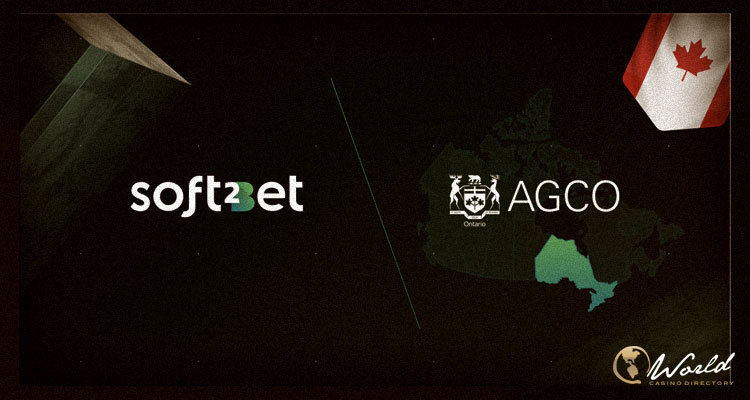
Understanding Gaming License Support: Navigating the Compliance Landscape
In the ever-evolving world of online gaming, one of the most crucial aspects for operators, developers, and players alike is the concept of gaming licenses. With regulations tightening globally, gaming license support Soft2bet Review is a perfect starting point to understand these complexities. In this article, we will delve into the significance of gaming licenses, the role of support systems, and what stakeholders need to know to maintain compliance while thriving in this competitive sector.
What is a Gaming License?
A gaming license is an official permit granted by a regulatory body that allows a company to operate within the gaming industry. These licenses are designed to ensure that operators adhere to established laws regarding the fairness of games, security of player data, and responsible gambling practices. Without a proper license, a gaming business faces legal risks, including heavy fines and even the prohibition of operations.
The Importance of Gaming License Support
Gaming license support encompasses a variety of services and resources aimed at helping gaming businesses achieve compliance with regulatory requirements. This support is paramount for the following reasons:
- Legal Compliance: The gaming industry is heavily regulated, with different jurisdictions having specific laws. License support helps operators understand these laws to avoid breaches.
- Reputation Management: Obtaining a reputable license boosts a gaming operator’s credibility, enhancing player trust and fostering a loyal customer base.
- Operational Guidance: Support systems provide essential information on best practices in software development, game fairness, marketing, and player protection.
- Risk Assessment: Support teams can assist in identifying potential risks related to licensing and operations, thereby mitigating the chance of compliance issues arising in the future.
Types of Gaming Licenses
Gaming licenses can differ greatly based on the issuing authority and the type of gaming involved. Here are some common types of licenses:
- Online Gambling License: Required to operate online casinos, sportsbooks, and other internet-based gaming activities.
- Land-Based Casino License: Necessary for physical gambling establishments, ensuring they operate under local laws.
- Software Provider License: For companies that develop games and platforms, ensuring that their products meet regulatory standards.
- Remote & Non-Remote Licenses: Remote licenses apply to online operations, while non-remote pertains to physical, land-based facilities.
Key Regulatory Authorities
Several jurisdictions are known for their favorable gaming laws and robust regulatory frameworks. Some of the most renowned regulatory authorities include:

- UK Gambling Commission: A leading authority known for its strict compliance requirements.
- Maltese Gaming Authority: Recognized for providing licenses to a significant number of online gaming companies.
- Germany’s Federal Central Tax Office: Governs the gaming market in Germany, focusing on taxation and compliance.
- Curacao eGaming: Offers an affordable and streamlined licensing process, popular among startups.
Challenges in Obtaining and Maintaining Licenses
While the benefits of having a gaming license are significant, there are also challenges associated with obtaining and maintaining compliance:
1. Complex Application Processes
Many regulatory bodies require extensive documentation, background checks, and operational plans before issuing a license. This process can be resource-intensive and daunting for new operators.
2. Ongoing Compliance Requirements
Once a license is obtained, operators must continuously adhere to compliance requirements, including regular audits, reports, and updates to their gaming software.
3. Legal Changes
The gaming industry is subject to frequent changes in legislation. Staying informed and adapting to these changes can be difficult without proper support.
How to Secure Gaming License Support
To navigate the complexities of gaming licensing, companies can take several steps to secure adequate support:
- Consult Legal Experts: Engaging with legal professionals specializing in gaming law provides insights into compliance and operational requirements.
- Join Industry Associations: Being part of gaming industry groups can offer networking opportunities, resources, and updated information on regulatory changes.
- Utilize Technology: Implementing compliance management software can streamline license management and ensure ongoing adherence to regulations.
- Training and Development: Regular training sessions for staff on compliance matters can enhance operational integrity.
Conclusion
In conclusion, gaming license support plays a vital role in the overall health of the gaming industry. Understanding the importance of acquiring, maintaining, and adhering to gaming licenses is essential for any operator looking to succeed in this competitive market. By leveraging support resources, staying informed about regulatory changes, and committing to compliance, businesses can navigate the gaming landscape successfully.
As new technologies and gaming trends emerge, the focus on responsible gaming and regulatory compliance will only grow. Thus, operators must prioritize understanding their obligations under relevant gaming licenses to build a safe and trustworthy gaming environment for all stakeholders involved.

Recent Comments